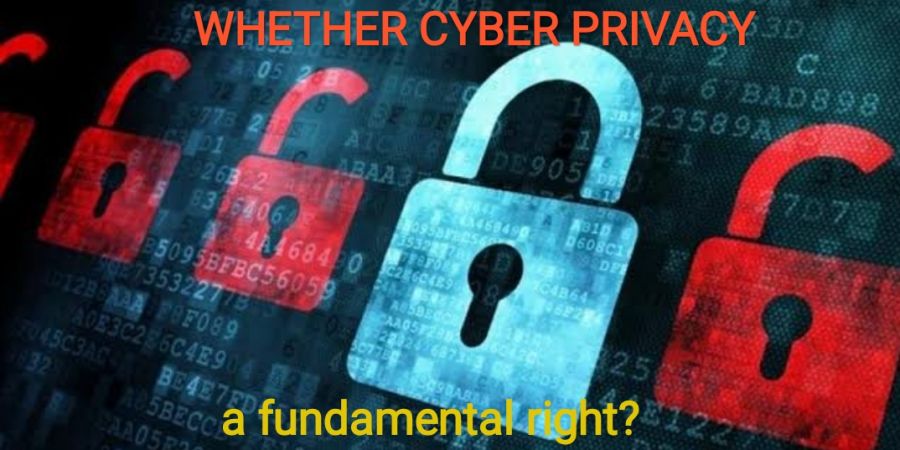

The degree to which security is properly secured is included in security as a right. Individuals, groups and organizations can choose when, how and how much data they share with others through data protection. The right to protection is more of an implied promise. Today's world is clearly digital. The advancement of electronic and computer technologies paved the way for new types of criminal activity. The current era of technical advancements has increased cybercrime. There are numerous cyber crimes. It's worth noting that the Indian Parliament created a new legal concept for data protection and privacy with relation to Information and technology Act, 2000.though the internet has altered the globe and has become a worldwide platform, we cannot ignore the platform's aspects. You never know how or when you are being watched in the electronic and cyber world. There may be a blackmail, and your data may be taken, as well as other threats may come. Cyber privacy is required for all of these illicit operations.
In a landmark decision on Aug 24 , 2017, the Supreme Court of India proclaimed the right to privacy to be a basic right protected under the Indian Constitution. The court's decision declaring that this right springs from the fundamental right to life and liberty, had far-reaching implications.
In Justice K. S. Puttuswammy (retd.) Vs. Union of India, the Supreme Court of India delivered a decisive judgement on win for privacy. A petition challenging the constitutional legality of Aadhar, India's biometric identity scheme, resulted in this decision. The nine judges signed a one page order that stated:
Article 21 protects the right to privacy as an integral aspects of the right to life and liberty, as well as the freedoms provided by Part III of the Constitution of India.
The 547 page judgement, in which the judges explain why the one page order was issued, compromises opinions from six judges and establishes a legal basis for privacy protection in India. The opinions adress a wide range of topics in order to establish that a privacy is a fundamental right that is inextricably linked to human dignity and liberty.
The Indian Constitution does not recognise the right to privacy as a fundamental right. However, the courts have incorporated the right to privacy into other existing fundamental rights, such as freedom of speech and expression under Article 19 (1) (a) of the Indian Constitution and the right to life and personal liberty under Article 21.














